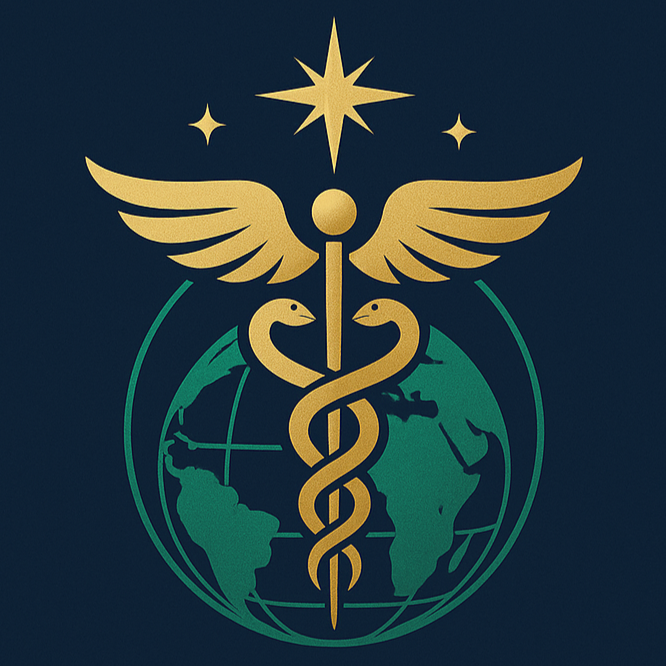About Espoir Nova 關於櫂星國際醫療

"Espoir" is the French word for "hope," derived from the Latin word spes, which, in medieval Latin literature, was one of the three theological virtues: faith, hope, and love (fides, spes, caritas). In the Bible, as well as in the writings of theologians such as Saint Augustine and Thomas Aquinas, spes is regarded as a guiding light for the soul. Espoir often represents prayer to God, endurance in the face of fate, and a belief in the power of hope.
"Nova" comes from the Latin word novus, meaning "new." In astronomy, a nova is a star that suddenly becomes visible in the night sky, symbolizing new beginnings, hope, transformation, radiance, and rebirth.
Therefore, Espoir Nova aspires to become a "star of hope" for patients in need of medical care. Through cross-disciplinary medical services, it aims to bring Taiwan's outstanding medical expertise to the world, allowing more patients to receive timely treatment. It seeks to be a light in the darkness, offering a cure for illness and a new beginning for patients and their lives. This then becomes our ultimate goal for building our services.
Difficulties you may face when getting access to Taiwan's Healthcare
✅ Key Gaps in Taiwan's International Healthcare
🔍 Lack of Transparent Information: Most hospital websites do not clearly present treatment workflows, efficacy data, or patient case studies—for example, for international cancer patients.
🌐 Language Barriers: English information is barely adequate, and there is almost no translation into Japanese, Vietnamese, Thai, etc., making it hard for many international patients to understand their treatment options.
🧳 No End‑to‑End Escort or Reception System: International patients must arrange accommodation, translation, and daily logistics on their own—hospitals do not offer a "one‑stop" service.
💡 No Clear Guidance on Treatment Options: Different diseases require very different protocols (surgery vs. hospitalization vs. other therapies), so patients struggle to decide whether to travel to Taiwan.
📞 No Post‑Op Follow‑Up Support: After returning home, foreign patients find it difficult to stay in touch with their original physicians, leading to insecurity and fragmented care.
🚀 What We Can Do for You
- 🎯 Personalized, Disease‑Focused Care Coordination
Tailored assessment of your specific condition and treatment history
Escorting and interpretation services, including detailed discussions with physicians
Scheduling support for medical appointments, visas, and accommodation
Second‑opinion coordination and translation of treatment recommendations
Expert matching to the best medical team for your needs, refining your care plan
Comparative summaries of top hospitals' strengths in your cancer type (e.g., NTU vs. Chang Gung vs. VGH)
- 🧭 Multilingual Information Platform (Website / Channels / Handbooks)
Q&A and informational content in English, Japanese, Vietnamese, Arabic, and more
Summaries of treatment modalities for each disease (e.g., surgery, radiotherapy, targeted therapy, immunotherapy)
Patient stories, cost ranges, success rates, and average hospitalization durations
- 🔄 Remote Post‑Op Follow‑Up Support
In partnership with Taiwanese hospitals, provide after‑return services:
Regular proactive reminders
Lab report uploads and interpretation
Online consultations and medication advice
🧠 Let Us Assist You!
-
Consolidated Treatment Information: Catalog each major hospital's specialties and unique protocols across medical fields
-
Guidance for International Patients: Multilingual Q&A—treatment descriptions, hospital comparisons, and procedural overviews
-
Free Initial Consultation: Translation of initial medical documents and physician recommendations
-
Value‑Added Escort & Interpretation Services: Collaboration with Taiwanese nurses and interpreters
-
Remote Post‑Op Support: Direct communication channels with physicians for ongoing online follow‑up and consultation



